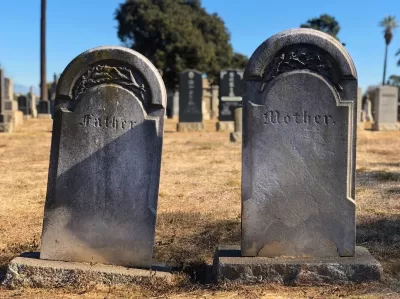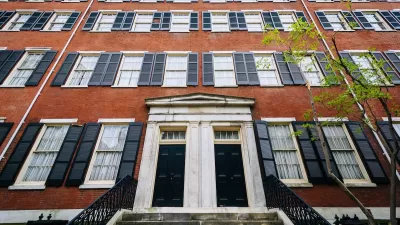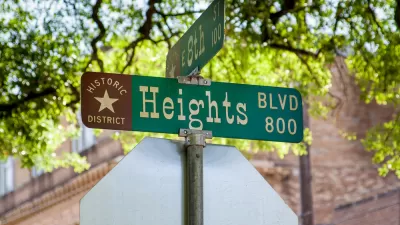America's historic Black cemeteries, which have long fallen victim to displacement, relocation, and outright destruction, could have a new ally in the fight for preservation and recognition.

The "African American Burial Grounds Network Act" proposes connecting Black cemeteries and burial sites across the country in a formal network and providing grant funding for research and restoration of sites. The bill hopes to reverse the loss of historic burial grounds and bring together the disparate web of volunteers and descendants who work to maintain historic cemeteries and bring their stories to light.
Despite repeated attempts by local communities to protect burial grounds, cities have frequently failed to prevent development from trumping the historic and spiritual significance of burial sites. In Richmond, Virginia, the city's Black cemetery was moved twice, largely at the whim of white residents moving into the newly suburbanized northside neighborhoods. Even today, a Maryland highway expansion project threatens to relocate dozens of gravesites from the 1890s. Without institutional protection or funding, historic Black cemeteries risk disappearing—and with them, huge chunks of American history.
The process of reclaiming graves, particularly when they've already been relocated or built over, can be painstaking and expensive. Volunteers like the Bethesda African Cemetery Coalition in Maryland pour thousands of hours into researching historic sites, advocating with cities and property owners, and fundraising for plaques and memorials. If the proposed legislation passes, the funding and exposure (the program would fall under the purview of the National Parks Service) could support more comprehensive preservation plans and ensure long-term protection for historic Black cemeteries.
FULL STORY: A New Generation of Volunteers Are Rescuing Historic Black Cemeteries—And Black History

Alabama: Trump Terminates Settlements for Black Communities Harmed By Raw Sewage
Trump deemed the landmark civil rights agreement “illegal DEI and environmental justice policy.”

Planetizen Federal Action Tracker
A weekly monitor of how Trump’s orders and actions are impacting planners and planning in America.

The 120 Year Old Tiny Home Villages That Sheltered San Francisco’s Earthquake Refugees
More than a century ago, San Francisco mobilized to house thousands of residents displaced by the 1906 earthquake. Could their strategy offer a model for the present?

LA’s Tree Emergency Goes Beyond Vandalism
After a vandal destroyed dozens of downtown LA trees, Mayor Karen Bass vowed to replace them. Days later, she slashed the city’s tree budget.

Sacramento Leads Nation With Bus-Mounted Bike Lane Enforcement Cameras
The city is the first to use its bus-mounted traffic enforcement system to cite drivers who park or drive in bike lanes.

Seattle Voters Approve Social Housing Referendum
Voters approved a corporate tax to fund the city’s housing authority despite an opposition campaign funded by Amazon and Microsoft.
Urban Design for Planners 1: Software Tools
This six-course series explores essential urban design concepts using open source software and equips planners with the tools they need to participate fully in the urban design process.
Planning for Universal Design
Learn the tools for implementing Universal Design in planning regulations.
Ada County Highway District
Clanton & Associates, Inc.
Jessamine County Fiscal Court
Institute for Housing and Urban Development Studies (IHS)
City of Grandview
Harvard GSD Executive Education
Toledo-Lucas County Plan Commissions
Salt Lake City
NYU Wagner Graduate School of Public Service





























